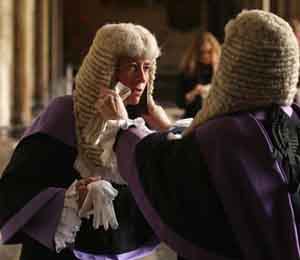On March 19, 1649, England’s House of Commons passed an act abolishing the House of Lords, declaring it “useless and dangerous to the people of England.”
This was during Oliver Cromwell’s rule as Lord Protector, after the execution of Charles I. The House of Lords did not again meet until the Convention Parliament of 1660, under the Restoration of the monarchy.

1 reply on “House of Lords”
The present House of Lords is a fundamentally different institution from the original. Much of the change took place during my lifetime and yours (especially with the House of Lords Act of 1999), but with the Parliament Act of 1911, the hereditary aristocrats accepted the eventual,replacement of their chamber. And this surrender came in the wake of a struggle over implementation of a land tax. The wealth of the aristocrats was largely in land, so they had been naturally resistant to taxation of land.
The tax was rationalized by pointing to the work of American economist Henry George, now quite obscure, but then internationally popular.
I don’t know that even most American economists now-a-days could tell you anything about Henry George. But, from the late Ninteenth Century into the 1950s, his thinking had international political significance, and en passant provoked a fundamental constitutional change for the United Kingdom, which change is still proceeding.